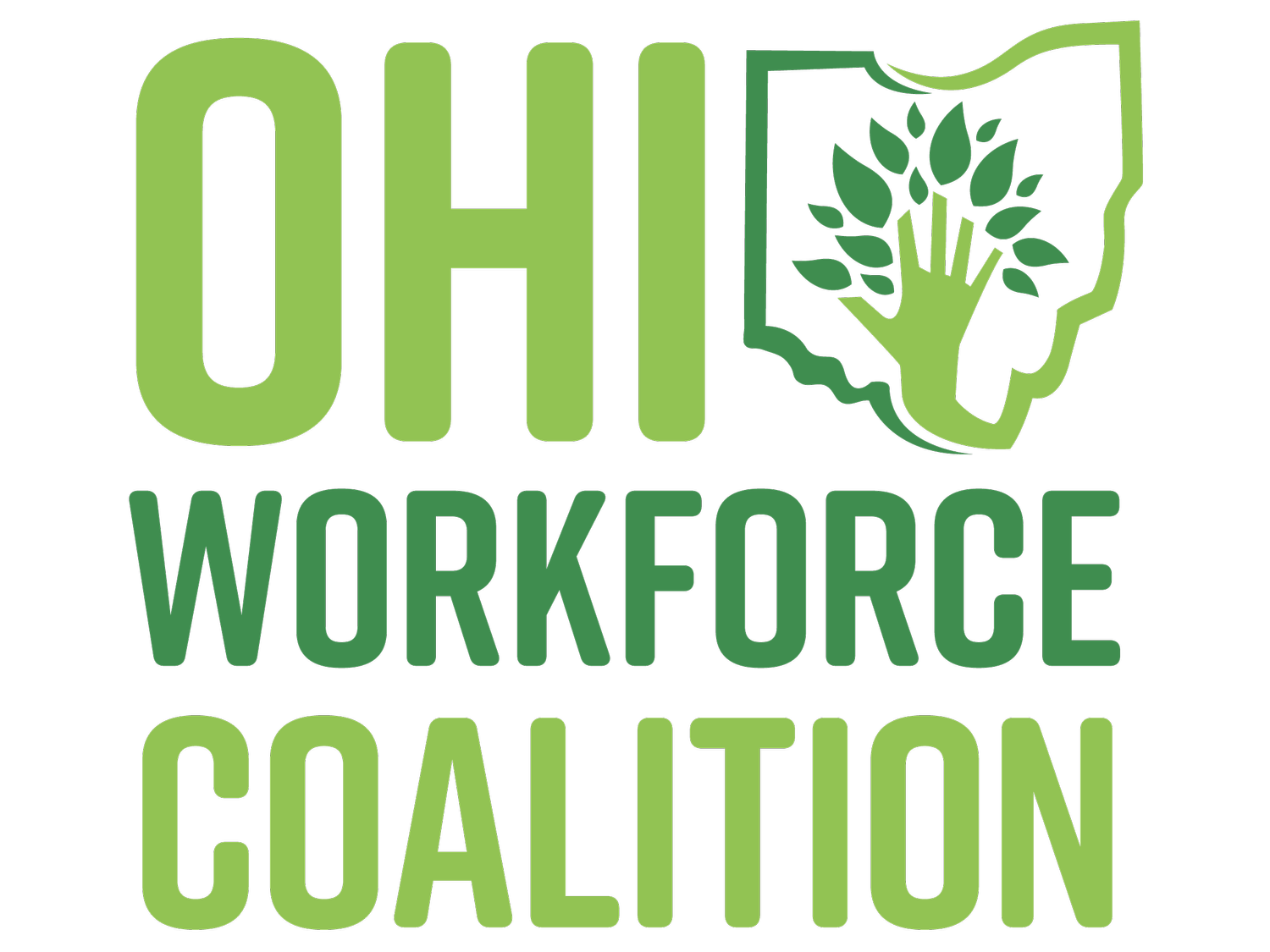The Ohio Workforce Coalition has contributed to a wide range of workforce policies in Ohio through network building, member engagement, issue education, and policy advocacy.
2024-2025 updates coming soon!
The Ohio Workforce Coalition has been convening workforce development stakeholders to advance policies that build skills, support employers, and strengthen workforce systems across Ohio since 2007.
On March 1st, the Ohio Workforce Coalition released our public policy priorities for the 2022-2023 biennium (review the policy priorities below).
These most recent priorities are OWC’s first public release of recommendations since 2010 and represent a focus on critical issues that the OWC is uniquely positioned to advance through leadership. In addition, OWC will partner with advocates representing post-secondary education and training, human services, and economic development to support their priorities.
Ohio Workforce Coalition
2022-2023 Policy Priorities
-
Build Skills
In the last biennium, $5 million in General Revenue funds was allocated to the launch and/or growth of sector partnerships across Ohio. This investment is a critical step towards building a skilled workforce by generating connections between business and local partners. It is critical that we offer the same type of flexible support to Ohioans—data shows flexible supports increase training completions by four times. To help ensure the success of this and future investments in sector partnership, the 2022-2023 Biennium budget should:
Continue to allocate General Revenue Funds to sector partnerships and reserve 10% of the allocation to build a flexible training, employment, and job-retention fund available to Ohioans who are under 300% of federal poverty level and pursing employment, training at community colleges, non-profit training partners, and career-technical schools, or working towards employer focused credentials for career advancement. Access to the fund should be available regardless of sector, employment status, national origin, criminal history, or other factors. The fund should be allocated through the public workforce system, encourage local match, and require that administration of the fund include local community-based organizations.
-
Support Employers
Across Ohio there are premier employers that invest in their workforce, value racial equity and inclusion, and strive to build strong workplace culture. These employers exist across sectors and sizes but share a commitment to high quality career opportunities that offer more than
livable wages—such as predictable hours and scheduling, Covid-19 and other workplace safety protocols, health coverage, and tuition reimbursement. To support such employers and recognize the importance of their efforts, Ohio should:Create an Ohio Premier Employer designation and award it to employers that opt-in to demonstrate quality opportunities through the objective assessment of job and workplace characteristics. Current and prospective Ohio employers who earn this designation should be given a) additional points in the state contract procurement process and b) priority access to state managed workforce funds and initiatives. Employers that opt in and do not earn the designation should be provided with information and access to resources to improve the quality of their jobs and workplace.
-
Strengthen Systems
Established by legislation in 2011 and Executive Order in 2012, JobsOhio and Ohio’s Office of Workforce Transformation turn ten this year and next! During the past decade, both have worked across state agencies, partnered with local areas, and documented everything from demand occupations to promising partnerships. Despite annual reports, JO and OWT’s impact and influence are not well captured through programmatic measures and the scale of their work is not well known or understood. To address this, Ohio leadership should:
Identify key workforce-related initiatives launched by or through JobsOhio and the Ohio Office of Workforce Transformation. Issue a report that documents their impact on Ohio’s agencies, jobseekers, and businesses. Promote data transparency, accountability, and stakeholder engagement by presenting the report—with successes and lessons learned—at stakeholder sessions across the state.
Endorse the OWC Policy Priorities to support the work.
Contact us with questions or to learn more.
Ohio Workforce Coalition
Columbus, Ohio
Email: info@ohioworkforcecoalition.org

